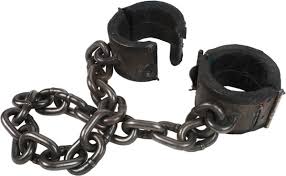There has been a lot of excitement surrounding Pope Francis’ words about abortion and forgiveness today. Covered by everyone from NPR to the Washington Post to Catholic News Service, few would argue the Holy Father’s emphasis on mercy–particularly on an issue like abortion–is not a welcome shift from approaches which tend to take a more prophetic approach to the evil of abortion.
But much of the buzz seems to be surrounding the fact that there is something new in the Pope’s actual teaching here. Is there?
Well, for starters, let’s compare his words released today…
The tragedy of abortion is experienced by some with a superficial awareness, as if not realizing the extreme harm that such an act entails. Many others, on the other hand, although experiencing this moment as a defeat, believe that they have no other option. I think in particular of all the women who have resorted to abortion. I am well aware of the pressure that has led them to this decision. I know that it is an existential and moral ordeal. I have met so many women who bear in their heart the scar of this agonizing and painful decision. What has happened is profoundly unjust; yet only understanding the truth of it can enable one not to lose hope. The forgiveness of God cannot be denied to one who has repented, especially when that person approaches the Sacrament of Confession with a sincere heart in order to obtain reconciliation with the Father.
…with those of Pope St. John Paul II in #99 of Evangelium Vitae:
I would now like to say a special word to women who have had an abortion. The Church is aware of the many factors which may have influenced your decision, and she does not doubt that in many cases it was a painful and even shattering decision. The wound in your heart may not yet have healed. Certainly what happened was and remains terribly wrong. But do not give in to discouragement and do not lose hope. Try rather to understand what happened and face it honestly. If you have not already done so, give yourselves over with humility and trust to repentance. The Father of mercies is ready to give you his forgiveness and his peace in the Sacrament of Reconciliation.
The similarity in both the tone and the substance of these statements is striking.
Of course, back in April Pope Francis issued a papal bull announcing an Extraordinary Jubliee Year of Mercy, and it was made clear back then that Pope Francis would send out “Missionaries” to facilitate the mercy of God, including for women who have had abortions.
So what, if anything, did today’s announcement add? At first glace, it looks as if he is being more specific about who these Missionaries of Mercy are:
For this reason too, I have decided, notwithstanding anything to the contrary, to concede to all priests for the Jubilee Year the discretion to absolve of the sin of abortion those who have procured it and who, with contrite heart, seek forgiveness for it.
So the missionaries of mercy turn out to be “all priests.” But what, precisely, are these missionaries doing? They will “absolve of the sin of abortion.” If Pope Francis was speaking precisely, it just isn’t clear that–according to Canon Law–that this is anything new.
In Light of the Law has an important piece on this question which distinguishes between the canonical use of three important terms: sin, crime, and sanction. Many (and perhaps most) canon lawyers appear to believe that all priests already have the ability to absolve of the sin of abortion, so if this is what Francis is talking about (and these are the words he uses) we are likely talking about degrees of emphasis here and not about a new teaching.
But not every sin is a crime according to Canon law. The crime has a higher bar to meet: an intentional and free choice to kill of the innocent. Any such acts (whether abortions or something else) are serious crimes and would mean automatic excommunication. And this is where some of the confusion may come from; traditionally, only ordinaries (bishops) could heal the relationship between the Church and someone who had been excommunicated. This, too, has apparently changed in many places where priests now also take on this role, but it would apparently be a shift if Pope Francis made it true for the whole Church during the Year of Mercy.
But In Light of the Law argues that women “rarely, if ever” commit the crime of abortion. This view stands on strong moral-theological ground. Many women are physically coerced into having abortions, and almost all women are coerced by patriarchal social structures which force them into ‘choices’ for which they do not have the same resources as do men. (This is not so, of course, for abortion providers. I write about this at some length in my new book Beyond the Abortion Wars, and it is the most important reason for any future policy criminalizing abortion punishing providers and not women.)
But the above interpretation of Canon Law is disputed, particularly on these vexing matters. And given that Pope Francis isn’t clear that he is addressing Canon Law, the argument over what, precisely, he said will likely go on until a clarification is made.
In the meantime, even if nothing new has been said, the shift of emphasis is important and substantial all by itself. Indeed, one wonders if it is no accident that this letter was released days before the Holy Father comes to the United States, a country gripped by an abortion discourse which could use a healthy dose of mercy.





Typically we seek forgiveness from those we have harmed. Thus…
I can understand why a woman might seek forgiveness from her unborn child. I can understand why she might seek forgiveness from her family. I can understand why she might seek forgiveness from herself. I can understand why she might seek forgiveness from God.
It’s less clear why priests should present themselves as the party from whom forgiveness should be sought. Is this the “coercion by patriarchal social structures” that the author refers to?
If the Church wishes to make peace with women who have had abortions, why not just make peace? Making peace might go, “We feel your pain, we pray for your healing, and welcome you among us.” Making peace with the person does not require making peace with the action they took.
If Francis wishes to teach the value of forgiveness, he might lead by example, and seek forgiveness on behalf of the Church for it’s demonizing of Planned Parenthood, an organization that does more to prevent abortion than the Church can, a fact which might bring a measure of humility to the Church’s own well intended efforts.
Such a demonstration of humility and mercy from the leader of the Church might help replace endlessly unproductive social conflict with a uniting recognition that all sides seek to end abortion, and all sides have valuable abilities to bring to that shared effort.
“It’s less clear why priests should present themselves as the party from whom forgiveness should be sought.”
Because in the Catholic Church the sacrament of reconciliation is the ordinary way in which people seek forgiveness for serious sins, and this sacrament involves confessing one’s sins to a priest?
Hi Mathew,
You make a good point. Yes, of course, confessing to priests is a common very Catholic procedure. I was remiss in not acknowledging that.
For some, this is a sufficient answer, case closed. I’m not arguing with that choice.
By asking the question I’m only reporting that for me it’s not a sufficient answer. Your comment helps me investigate my own situation further.
Perhaps it’s the very personal nature of this particular sin that is giving me pause. And the insertion in to the equation of a third party male with no family experience.
Thanks to your comment, I realize now that if women who’ve had abortions were confessing to other married Catholic women who’ve faced the same challenges, I doubt it would have occurred to me to question the procedure. And if it was husbands confessing an abortion decision to a priest (did we forget them?), again I probably wouldn’t have complained.
I’m charmed by Pope Francis like everybody else, but must admit I’m kind of uncomfortable with the Church saying “come to us to seek forgiveness” when I see the Church as often being stubbornly reluctant to seek forgiveness from those it has harmed. Leading by example is the most persuasive way to reach this particular reader.
As your comment has correctly identified, I tend to be “way out there” on such issues. As example, when I become Pope I’m going to send all the male clergy from top to bottom out in to the field to help Catholic Charities serve the needy, and put the nuns in charge for awhile. Thus, my Papacy will be very brief, which I’m sure everyone can agree with. 🙂